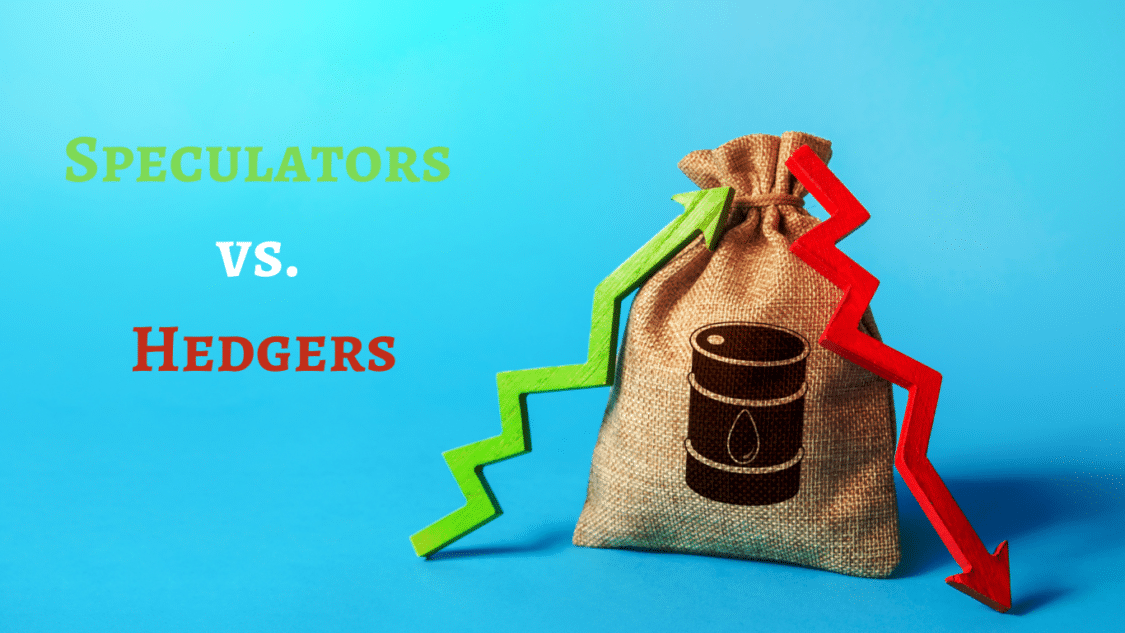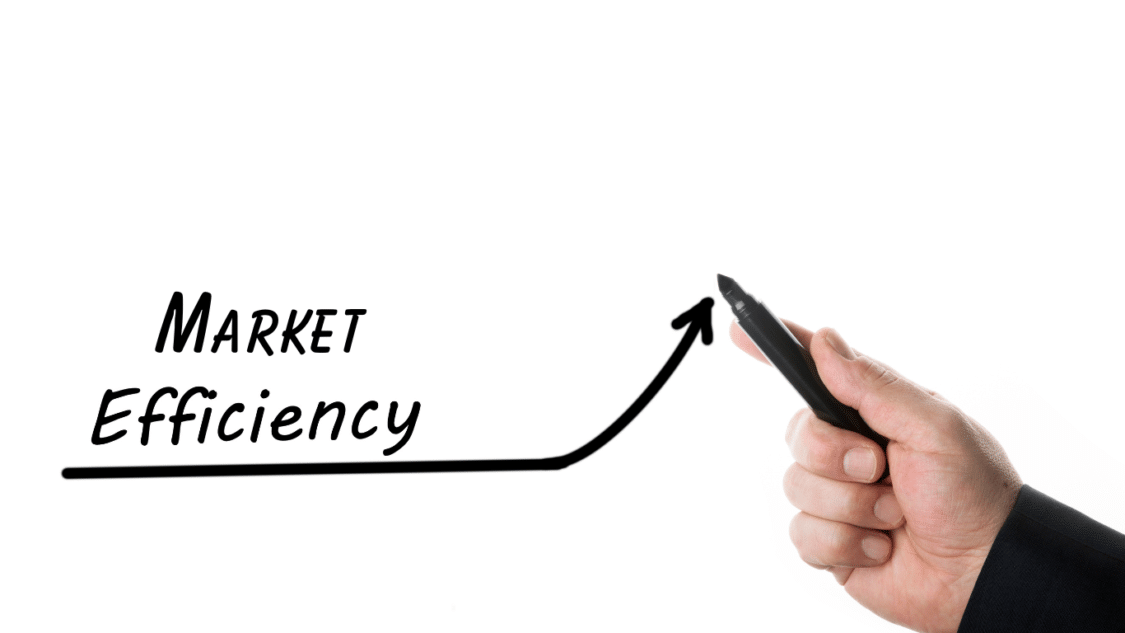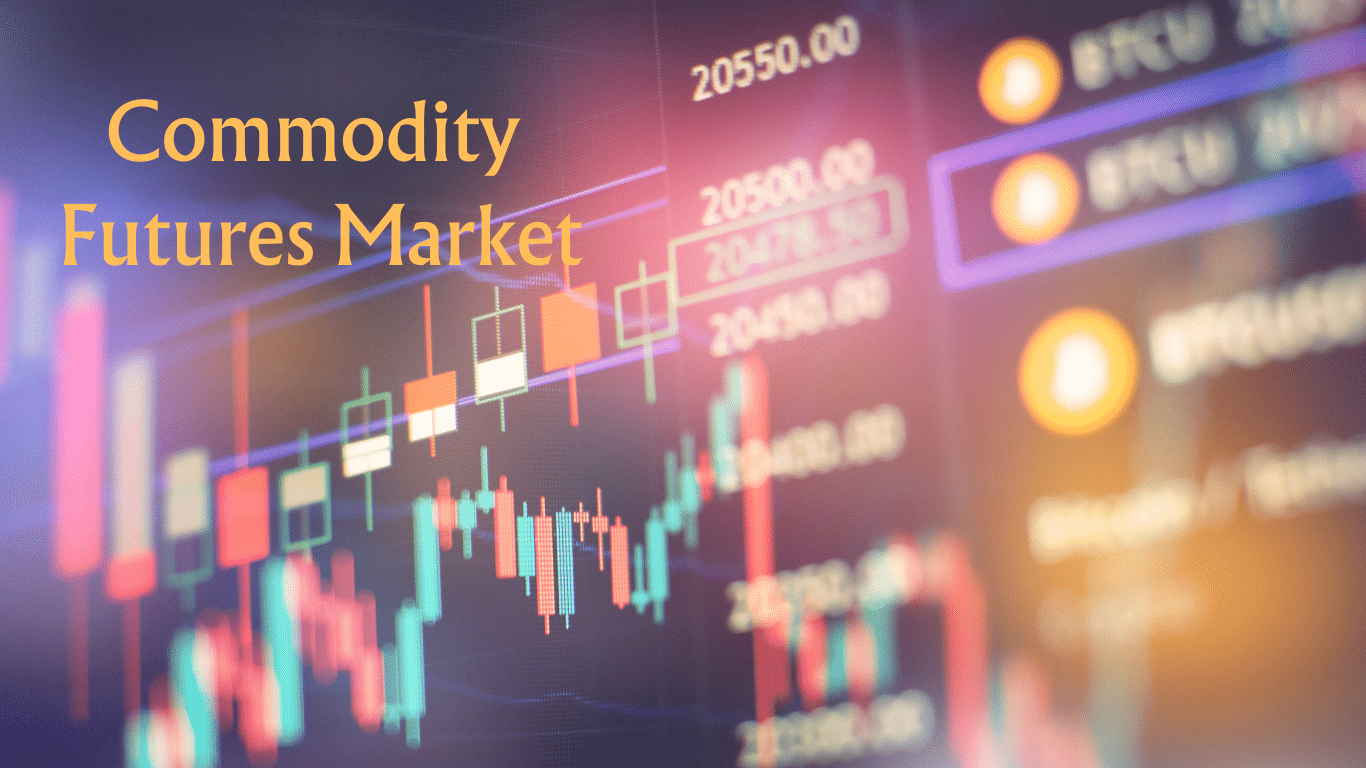- The Basics of Commodity Futures Market:
- What are Speculators and Hedgers?
- The Market Dynamics:
The commodity futures market is a dynamic and vital part of the global financial landscape. The commodity futures market offers a platform for players to trade future delivery contracts for commodities such as energy, metals, agriculture, etc. This article delves into the important details of the commodity futures market, highlighting its significance, main participants, trading procedures, and the factors affecting its price movements.
The Basics of Commodity Futures Market:
These contracts define the commodity’s amount, quality, and delivery date. Futures contracts are used by participants to hedge against price movements or to speculate on price swings. Market participants must understand the basics of commodities futures trading.
What are Speculators and Hedgers?

Speculators and hedgers refer to the two main types of participants involved in the commodity futures market. Speculators aim to benefit from price changes by purchasing cheap and selling high, with no intention of delivering the product. On the other hand, futures contracts are used by hedgers to protect themselves against possible price volatility by matching their holdings with their actual exposure to the underlying commodity.
The Market Dynamics:
The commodity futures market is critical in determining commodity prices. Price changes are shaped by supply and demand, as well as market sentiment and outside factors. Traders and investors must understand how these factors impact price discovery and market dynamics.
Supply and demand dynamics primarily drive price variations in the commodities futures market. When demand exceeds supply, prices rise as buyers compete for limited supplies of the product at hand. In contrast, when supply exceeds demand, prices tend to fall owing to excess stock. Supply and demand factors include production levels, consumption patterns, stocks, technical breakthroughs, and geopolitical events.
Commodity prices are related to macroeconomic indices like inflation, interest rates, and currency exchange rates. Changes in the above-mentioned indicators can impact market sentiment and commodity demand. Furthermore, financial market developments, such as equities markets and currency changes, can indirectly affect commodities futures prices.
Participants and Trading Mechanisms in the Commodity Futures Market
Commodity exchanges, like the Chicago Mercantile Exchange (CME), New York Mercantile Exchange (NYMEX), and Intercontinental Exchange (ICE), facilitate price discovery and trading by providing a centralized platform. In this place, buyers and sellers are allowed to trade standardized futures contracts. By combining supply and demand information from market participants, these exchanges play an essential role in price discovery.
Clearinghouses operate as mediators in commodity futures trading, assuring contract performance and trade settlement. They mitigate counterparty risk by acting as the main counterparty in all transactions.
This mechanism contributes to the smooth operation of the market and fosters confidence among competitors.
Farmers, mining corporations, and oil producers all engage in the commodity futures market to regulate price risk. They may lock in rates for future delivery, giving them more assurance in planning their operations. Futures contracts are used by consumers such as factories and airlines to hedge against price volatility while getting a predictable cost for raw commodities. Speculators, such as hedge funds and individual traders, enter the market to profit from price changes without having a direct interest in the actual commodity, hence increasing liquidity and improving market efficiency.
Trading Mechanisms and Market Efficiency
Commodity futures trading was mainly done through open outcry, in which dealers gathered in trading pits and utilized hand signals and verbal bids and offers to carry out contracts. However, electronic trading has become the primary way as technology has advanced. Participants can trade commodities remotely using electronic trading platforms, which provide more accessibility, efficiency, along with faster execution.

Participation of various market players and electronic trading infrastructure helps market liquidity and improves pricing efficiency in the commodities futures market. A liquid market enables smooth trade execution and reduced bid-ask spreads, lowering participant transaction costs. Efficient pricing ensures that market prices reflect the underlying supply and demand dynamics appropriately.
What are the advantages and disadvantages of the commodity future markets?
The commodities futures market has various advantages and disadvantages that market participants should consider. One key benefit is its role in price discovery, giving a transparent platform for supply and demand forces to determine fair market pricing. Furthermore, commodity futures allow producers and consumers to manage and mitigate their pricing risks by hedging against price volatility.
The market’s abundant liquidity will enable traders to enter and leave, encouraging efficient and competitive marketplaces quickly. Speculators also look for opportunities in commodity futures, which provide liquidity and improve market efficiency. Furthermore, because of the low correlation with traditional asset classes, investing in commodities futures can act as a diversification strategy within an investment portfolio.
The commodities futures market, however, also comes with its disadvantages. The inherent volatility and price risk associated with commodities is a huge drawback. Rapid price swings caused by unanticipated circumstances might lead to financial losses. Leverage in futures trading magnifies both possible gains and losses, increasing traders’ risk.
External variables such as government policies, trade restrictions, and regulatory changes can increase market uncertainty and risk. Seasonal pricing trends and weather-related issues must also be closely examined since they can substantially impact market dynamics. Finally, the market is vulnerable to market manipulation and insider trading, which can distort prices and jeopardize market integrity if not adequately controlled.
Market participants are urged to research and even seek professional advice to asses risk and prevent losses. Understanding the advantages and disadvantages of the commodity futures market is crucial for making informed decisions and managing the risks effectively.
Which type of investors usually aim to invest in the commodity futures market?
Commodity futures attract various types of investors, each with their investment objectives and strategies. Some of the most common type cast of investors who invest in commodity futures include.

Producers and Consumers: Commodity producers and consumers frequently use commodity futures to control price risk connected with their underlying operations. Farmers and mining businesses, for example, utilize futures contracts to lock in pricing for future production, providing a consistent cash stream. Futures contracts are used by consumers, such as manufacturers and energy corporations, to hedge against price volatility and offer a predictable cost for raw resources.
Speculators: Speculators are investors who seek to profit from price changes in commodity futures without owning actual commodities. They take positions based on their market forecast, using tactics such as trend following, technical analysis, and fundamental analysis. Speculators supply market liquidity and can profit from short-term price changes.
Institutional Investors: Commodity futures are frequently used by institutional investors like hedge funds, pension funds, and commodity trading advisers (CTAs). Commodities provide diversification benefits as well as possible inflation protection for these investors. Typically, institutional investors have the means and skills to monitor market patterns and implement complicated trading techniques.
Retail Investors: Retail investors also trade commodity futures, including individual traders and smaller investment organizations. They may be drawn in by the prospect of profit, diversification, or gaining exposure to certain commodities without physically owning them. Retail investors often access commodity futures markets through online brokerage platforms.
Examples of Commodity Futures
Here is a list of commodity futures:
Crude Oil: Crude oil futures are frequently traded because of the worldwide need for petroleum products. They operate as a reference point for oil prices and are impacted by geopolitical factors, supply and demand dynamics, and economic circumstances.
Gold: Gold futures are a popular investment choice as a safe-haven asset and inflation hedge. The global financial crisis impacts gold prices, central bank policies and investor mindset.
Corn: Corn futures are essential in the agriculture industry. Planting and harvesting seasons, climatic conditions, and demand for corn-based goods such as biofuels and animal feed all impact corn futures.
Natural Gas: Natural gas futures follow the price of this frequently utilized energy commodity. Weather patterns, supply and demand dynamics, and geopolitical events all impact production and transportation.
Copper: Copper futures are thoroughly monitored as a leading indication of global economic activity. Copper is commonly used in various industries, including building and manufacturing, and the price of copper is impacted by variables such as industrial demand, supply delays, and economic growth.
These five commodities are the most popular; they represent a combination of energy, precious metals, and agricultural items, demonstrating the market’s versatility and usefulness to various sectors of the economy. These are just a few of the many commodities futures contracts available.
Closing Thoughts – Commodity Futures Market
Seasonal trends, climatic conditions, and the active engagement of diverse market players are all elements that impact price dynamics in the commodities futures market. Understanding and evaluating these characteristics can help traders and hedgers make educated judgments about correctly timing their positions and minimizing price risk. Developing trading systems and involving commodities exchanges and clearinghouses are critical in guaranteeing market transparency, security, and efficiency. Players can navigate the commodities futures market with better confidence and maximize their trading tactics by appreciating the relevance of seasonal trends, weather conditions, and the active engagement of market players.

